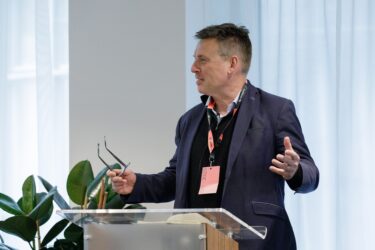
This blog was written by Anthesis CEO, Stuart McLachlan and is part 1 of a series of insights on this years’ Conference of the Parties 28 (COP28) in the United Arab Emirates.
Having not been to a COP since ‘Hopenhagen’ in 2009 (when all of my low expectations were fulfilled) it was fascinating to take the temperature in Dubai last week. Anything seemed possible: I arrived to positive news on the loss and damage fund, but left to Sultan Al Jaber’s strange outburst on the lack of science behind fossil fuel phase out.
What to make of it all?
You don’t need to go to another COP to understand the gravity of the situation we face, but the realities were spelled out time and again from we’re off track on all the UN’s Sustainable Development Goals; we’re into the red on six of nine planetary boundaries, and at dangerous tipping points for five of the earth’s life-sustaining systems. Visibly shocked climate scientists are horrified by this year’s spike in temperatures, and many now see the dream of keeping change within 1.5 degrees fast becoming a fantasy.
The space for denial is disappearing faster than the glaciers, but humanity has been pretty good at kicking the climate can down the road since Berlin’s COP1 in 1995. In Dubai, as ever, there was much talk about 2030, 40 and 50, and yet more target setting – some credible, some not. But what felt new was a strong shared sense of a real and present climate crisis. The only question that now matters is whether the move from denial to acceptance of reality will result in the necessary action.
With global emissions still yet to peak, and the final outcome of COP 28 still unclear, what are the positive signs? The blizzard of announcements, from billions committed to the loss and damage fund to public endorsement by over 100 nations of a commitment to ‘phase out unabated fossil fuels suggest a level of seriousness about the real challenges. And while it might not sound great that we’re on track for 2.9 degrees and the catastrophes that would bring, it’s better than the 4-5 degrees anticipated in Copenhagen.
Much of that difference is thanks to the targets set at COP21 in Paris and the net zero commitments being made by businesses. Anthesis supports many of them, so we know in detail the profound challenges net zero presents a company looking to remain profitable and grow. Staying below 2 degrees doesn’t just mean decarbonising our energy and food system, or agriculture going from a 4GT/annum source of emissions to a sink of 5GT/annum. We must also keep terrestrial ecosystems intact, keep oceans stable and bring carbon removal, storage and use technologies onstream at massive scale to remove -10GT carbon removals per annum.
Most of the people I met at COP28 realise these changes will represent the greatest transformation the world has ever seen – and the greatest market opportunity ever. But politicians and governments are stuck, and business is plagued by two things:
- The need for stronger and more consistent policy signals from government.
- Leaders thinking this is a compliance agenda, like any other. Tick some boxes, cut a cheque and get back to BAU. Business leaders love to manage the status quo, and to deliver value within the prevailing rules of tried and tested models and systems.
What I heard at COP was a recognition that the old models and systems are broken. That transformation will be decades in the making, but in the meantime we need to create a context where governments, society and business can collaborate and thrive as they invent the new world. Happily the Green Zone showcased plenty of entrepreneurial energy and reasons to hope if only they – and we – can achieve pace and scale.
What’s stopping us?
Government and Business have much to do, but the big call out for me was recognition of the unsung hero in the journey to date – Nature. The dynamic, difficult to measure partner that has been working tirelessly to compensate for the procrastination of all other players in this crisis. This heroic partner is close to collapse. As in the pandemic when furlough and lockdown were crisis responses to relieve pressure on our health systems. So, we need nature-based solutions to relieve pressure on our planetary systems in this crisis. Those solutions and the obvious and inextricable link between climate and nature was on the agenda at COP28 as never before.
We are the world’s leading purpose driven, digitally enabled, science-based activator. And always welcome inquiries and partnerships to drive positive change together.




